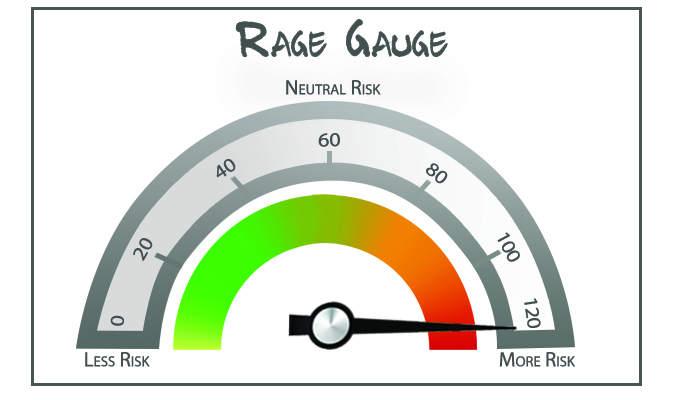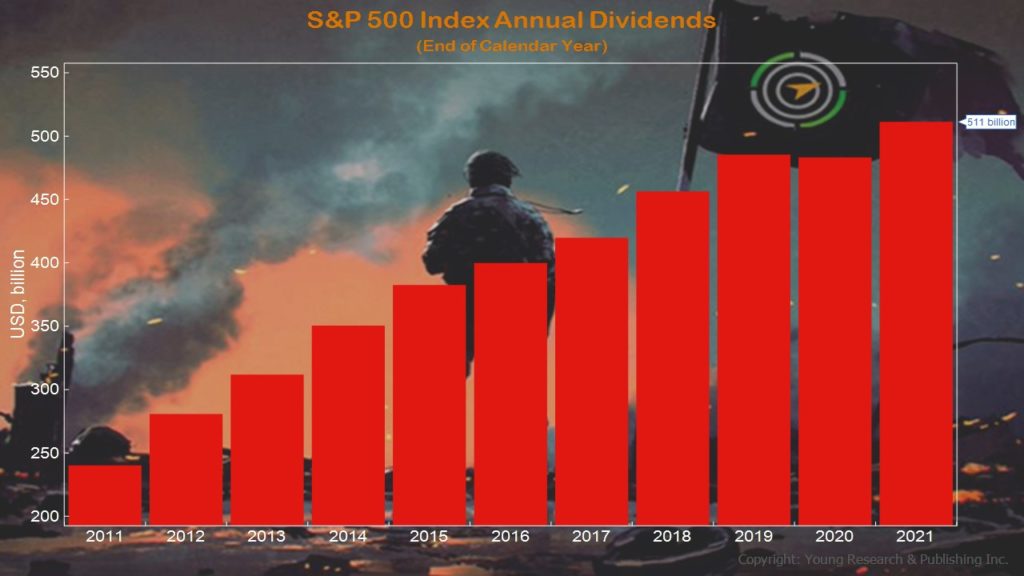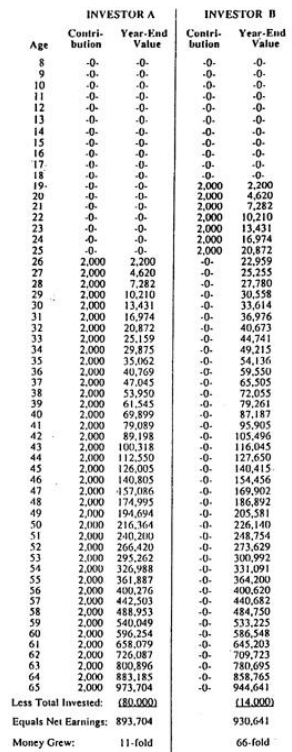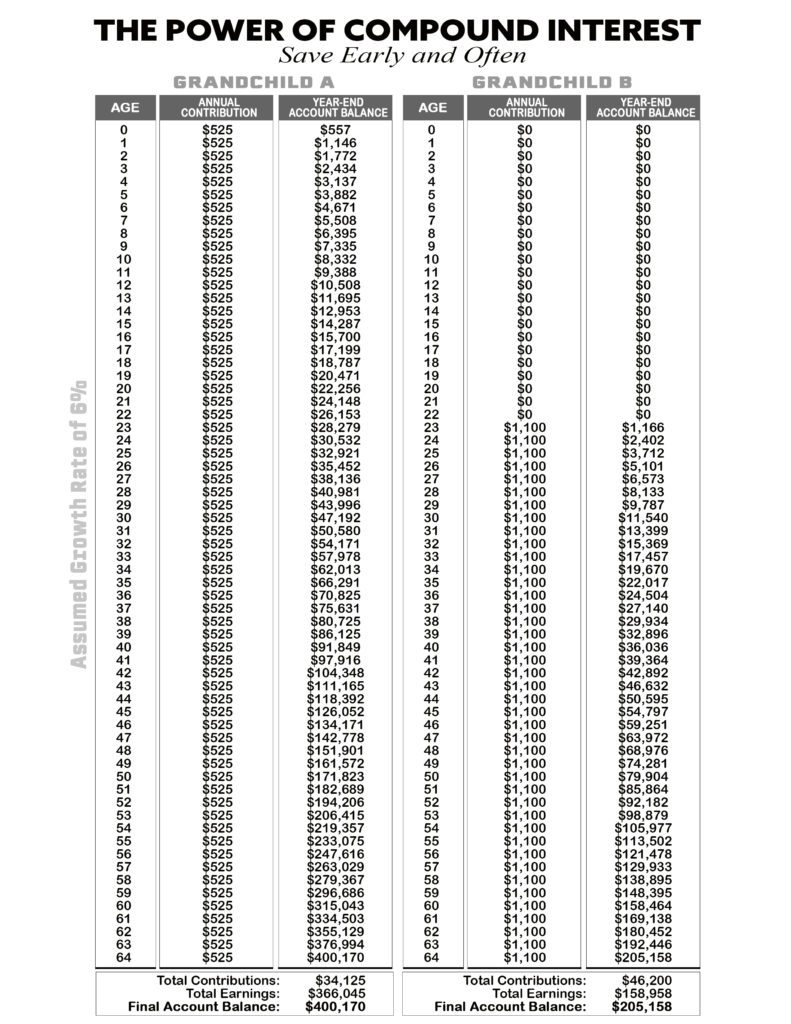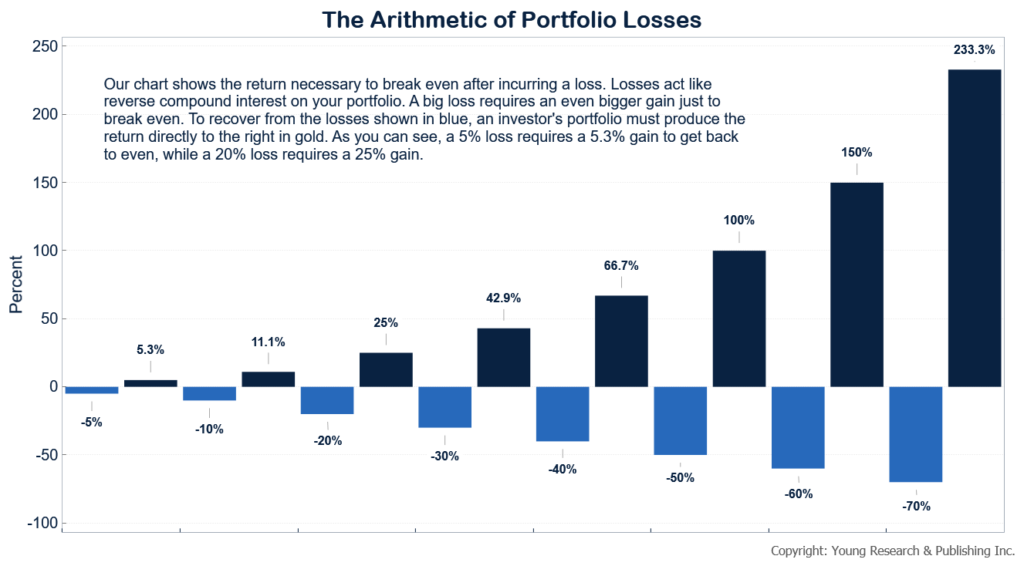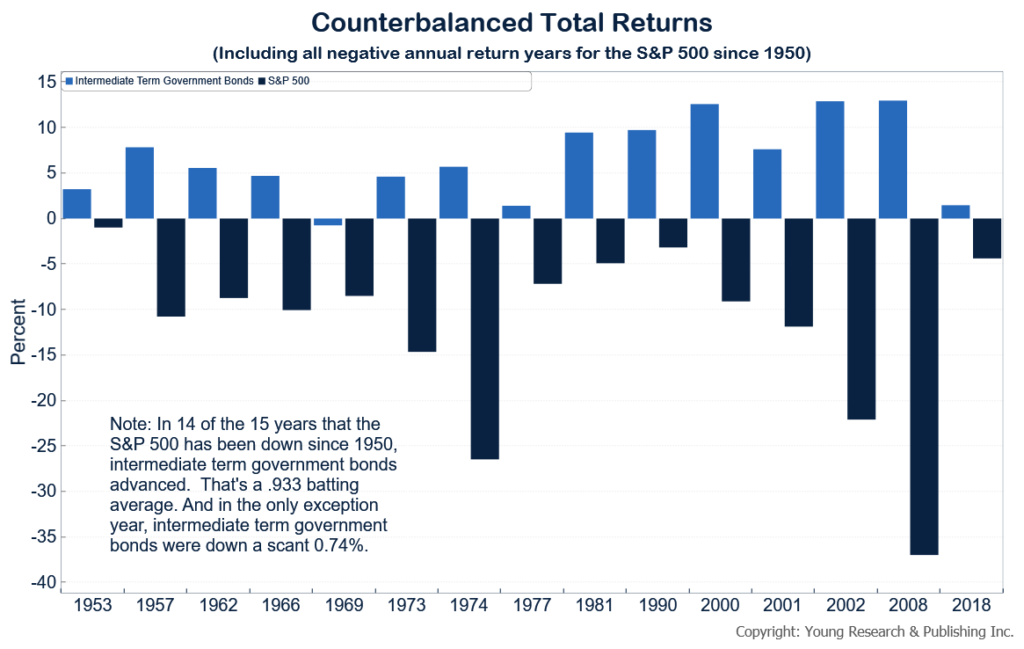
OK, my latest RAGE Gauge is in, and it’s not pretty. What’d you expect me to say? Dissatisfaction with the direction of America is at lows not usually met EVER. Gun sales are up probably due to gun control legislation being pushed even after the Supreme Court’s recent pro-gun decision. Employment is up. If you want a job, you can get one. Gold hasn’t moved much, probably because of dollar strength (for now) and rising rates. Remember, this is a competition between asset classes. All in all, not a great feel to be kind.
On the rough and tumble streets of Newport, RI, it’s busy but not crazy busy like it was during Covid. The number of families renting/buying during that time was incredible. Real estate prices are still hot mainly because real estate’s about supply, and you can count the available inventory in the area on one hand. Some restaurants are understaffed, but the primo ones are in good shape. But good luck trying to get a reservation.
If you’re planning a trip to New England, be sure to carve out some time to come see me in Newport. I had the pleasure of meeting with clients from Colorado yesterday who rent for a month on the Cape. They did some offshore tuna fishing off Chatham when the bite was on. Big time. Trolling a spread was the way to go.
Action Line: Stocks aren’t cheap, but if you’re investing in dividends and have a five-year window, at least you’re getting paid to be an owner. Bond ladders are the way to go as we’re seeing 4%+ yields. If you need help constructing a bond ladder, let me know. Remember, in times like these, it’s hard to catch a falling knife. Hang in there. This could take a while.
Rich Grandchild, Poor Grandchild

Originally posted November 29, 2019.
This is one of my favorite investment pieces by the late Richard Russell:
Rich Man, Poor Man
By Richard Russell
The most popular piece I’ve published in 40 years of writing these Letters was entitled, “Rich Man, Poor Man.” I have had dozens of requests to run this piece again or for permission to reprint it for various business organizations.
Making money entails a lot more than predicting which way the stock or bond markets are heading or trying to figure which stock or fund will double over the next few years. For the great majority of investors, making money requires a plan, self-discipline and desire. I say, “for the great majority of people” because if you’re a Steven Spielberg or a Bill Gates you don’t have to know about the Dow or the markets or about yields or price/earnings ratios. You’re a phenomenon in your own field, and you’re going to make big money as a by-product of your talent and ability. But this kind of genius is rare.
For the average investor, you and me, we’re not geniuses so we have to have a financial plan. In view of this, I offer below a few items that we must be aware of if we are serious about making money.
Rule 1: Compounding: One of the most important lessons for living in the modern world is that to survive you’ve got to have money. But to live (survive) happily, you must have love, health (mental and physical), freedom, intellectual stimulation — and money. When I taught my kids about money, the first thing I taught them was the use of the “money bible.”
What’s the money bible? Simple, it’s a volume of the compounding interest tables.
Compounding is the royal road to riches. Compounding is the safe road, the sure road, and fortunately, anybody can do it. To compound successfully you need the following: perseverance in order to keep you firmly on the savings path. You need intelligence in order to understand what you are doing and why. And you need a knowledge of the mathematics tables in order to comprehend the amazing rewards that will come to you if you faithfully follow the compounding road. And, of course, you need time, time to allow the power of compounding to work for you. Remember, compounding only works through time.
But there are two catches in the compounding process. The first is obvious – compounding may involve sacrifice (you can’t spend it and still save it). Second, compounding is boring — b-o-r-i-n-g. Or I should say it’s boring until (after seven or eight years) the money starts to pour in. Then, believe me, compounding becomes very interesting. In fact, it becomes downright fascinating!
In order to emphasize the power of compounding, I am including this extraordinary study, courtesy of Market Logic, of Ft. Lauderdale, FL 33306. In this study we assume that investor (B) opens an IRA at age 19. For seven consecutive periods he puts $2,000 in his IRA at an average growth rate of 10% (7% interest plus growth). After seven years this fellow makes NO MORE contributions — he’s finished.
A second investor (A) makes no contributions until age 26 (this is the age when investor B was finished with his contributions). Then A continues faithfully to contribute $2,000 every year until he’s 65 (at the same theoretical 10% rate).
Now study the incredible results. B, who made his contributions earlier and who made only seven contributions, ends up with MORE money than A, who made 40 contributions but at a LATER TIME. The difference in the two is that B had seven more early years of compounding than A. Those seven early years were worth more than all of A’s 33 additional contributions.
This is a study that I suggest you show to your kids. It’s a study I’ve lived by, and I can tell you, “It works.” You can work your compounding with muni-bonds, with a good money market fund, with T-bills or say with five-year T-notes.
Rule 2: DON’T LOSE MONEY: This may sound naive, but believe me it isn’t. If you want to be wealthy, you must not lose money, or I should say must not lose BIG money. Absurd rule, silly rule? Maybe, but MOST PEOPLE LOSE MONEY in disastrous investments, gambling, rotten business deals, greed, poor timing. Yes, after almost five decades of investing and talking to investors, I can tell you that most people definitely DO lose money, lose big time — in the stock market, in options and futures, in real estate, in bad loans, in mindless gambling, and in their own business.
RULE 3: RICH MAN, POOR MAN: In the investment world the wealthy investor has one major advantage over the little guy, the stock market amateur and the neophyte trader. The advantage that the wealthy investor enjoys is that HE DOESN’T NEED THE MARKETS. I can’t begin to tell you what a difference that makes, both in one’s mental attitude and in the way one actually handles one’s money.
The wealthy investor doesn’t need the markets, because he already has all the income he needs. He has money coming in via bonds, T-bills, money market funds, stocks and real estate. In other words, the wealthy investor never feels pressured to “make money” in the market.
The wealthy investor tends to be an expert on values. When bonds are cheap and bond yields are irresistibly high, he buys bonds. When stocks are on the bargain table and stock yields are attractive, he buys stocks. When real estate is a great value, he buys real estate. When great art or fine jewelry or gold is on the “give away” table, he buys art or diamonds or gold. In other words, the wealthy investor puts his money where the great values are.
And if no outstanding values are available, the wealthy investors waits. He can afford to wait. He has money coming in daily, weekly, monthly. The wealthy investor knows what he is looking for, and he doesn’t mind waiting months or even years for his next investment (they call that patience).
But what about the little guy? This fellow always feels pressured to “make money.” And in return he’s always pressuring the market to “do something” for him. But sadly, the market isn’t interested. When the little guy isn’t buying stocks offering 1% or 2% yields, he’s off to Las Vegas or Atlantic City trying to beat the house at roulette. Or he’s spending 20 bucks a week on lottery tickets, or he’s “investing” in some crackpot scheme that his neighbor told him about (in strictest confidence, of course).
And because the little guy is trying to force the market to do something for him, he’s a guaranteed loser. The little guy doesn’t understand values so he constantly overpays. He doesn’t comprehend the power of compounding, and he doesn’t understand money. He’s never heard the adage, “He who understands interest — earns it. He who doesn’t understand interest — pays it.” The little guy is the typical American, and he’s deeply in debt.
The little guy is in hock up to his ears. As a result, he’s always sweating — sweating to make payments on his house, his refrigerator, his car or his lawn mower. He’s impatient, and he feels perpetually put upon. He tells himself that he has to make money — fast. And he dreams of those “big, juicy mega-bucks.” In the end, the little guy wastes his money in the market, or he loses his money gambling, or he dribbles it away on senseless schemes. In short, this “money-nerd” spends his life dashing up the financial down-escalator.
But here’s the ironic part of it. If, from the beginning, the little guy had adopted a strict policy of never spending more than he made, if he had taken his extra savings and compounded it in intelligent, income-producing securities, then in due time he’d have money coming in daily, weekly, monthly, just like the rich man. The little guy would have become a financial winner, instead of a pathetic loser.
RULE 4: VALUES: The only time the average investor should stray outside the basic compounding system is when a given market offers outstanding value. I judge an investment to be a great value when it offers (a) safety; (b) an attractive return; and (c) a good chance of appreciating in price. At all other times, the compounding route is safer and probably a lot more profitable, at least in the long run.
Here’s how you can put Rich Man Poor Man to work for your grandchildren:

The short answer is, early. The earlier you can start saving for your grandchild, the greater the impact you’ll have on their life.
Take a trip with me. Let’s say you help a grandchild get into the savings game when they’re born by contributing $525 per year to an account you establish for them. (I favor UGMAs for this purpose). You diligently save each year for her first 21 years.
Then when she turns 22, she continues along the same path, saving $525 on her own each year until she’s 64.
Look at my table below to compare her success to someone who begins his investment savings at age 22 at double the savings rate of your granddaughter, saving $1,100 each year. Even though he’s saving twice as much each year, when he turns 64 he’ll have half as much as your granddaughter simply because you helped put time on her side with your early generosity (I’ve used a long-term expectation for stocks of 6% growth per year).
So, how do you save money for your grandchild? Easy, put time on their side.
FOOD SHORTAGE: Crazed Hoarding Is not Preparing

As increased media attention pushes worries of a global food shortage, it’s important to remember that food storage and stockpiling are not the same as simply hoarding food. Like all important endeavors, a food preparation plan must be deliberate, maintained, and regularly modified and adjusted for maximum efficiency.
In a recent article, Dr. Joseph Mercola gives his thoughts on maximizing the nutritional value of stored food. He writes:
Many say they feel unsure about how to prepare for food shortages and famine, having no real experience with that sort of thing. Modern life has also in many ways made us overly reliant on technologies that might not be available in an energy shortage situation. Foods that require refrigeration or freezing, for example, might spoil and go to waste if you lose electricity for more than two days.
While the solutions will vary from household to household, depending on your financial situation, location and skill level when it comes to growing and storing food, here’s a list of shelf-stable and nutritious items that can help you get through hard times.
Ideally, you’d be eating these foods on a regular basis anyway. This way, you can easily rotate your supply rather than buying something once and then not touching it for years on end.
Many prepper recommendations fall short in that they primarily focus on large quantities of rice and beans, but unless you’re willing to let your health go to waste, you’d be wise to focus on nutrition rather than carb-rich belly-fillers.
- Animal protein — In my view, animal protein would be one of the most important supplies to stock up on. This would require the meat to be frozen. It would likely make sense to get another freezer to store enough meat for three to six months for your family. The key to making this work is to have a backup power supply, as there is a high likelihood the grid will go down and you will lose your investment.
The most economical way to do this would be to get ground bison, beef or lamb. Avoid pork and chicken due to high linoleic acid content. Ground meat is less expensive, but more importantly, takes up the least amount of space in your freezer- Canned wild Alaskan salmon, mackerel and sardines — All of these contain healthy fats while being low in toxic water pollutants and heavy metals
- Tallow, ghee and coconut oil — These healthy fats are ideal for cooking and remain stable even without refrigeration
- Organic beef broth and/or collagen powder — Beef broth is an ideal source of collagen, but organic grass fed collagen powder will stay fresh longer. Collagen is the most common and abundant of your body’s proteins, and is required for bone health, tissue integrity and repair
- Whey protein — Whey protein is rich in leucine, which helps stimulate muscle protein synthesis, thereby promoting healthy muscle. Without a regular source of meat, it can be difficult to achieve enough leucine to maintain body protein from diet alone. Fortunately whey can be easily stored and can serve as a resource to preserve your muscle mass
- Rice — Rice is a gluten-free staple that can be stored for long periods of time. Interestingly, white rice (my favorite is basmati) is far preferred over brown rice as the antinutrients in brown rice impair its role as a clean source of carbohydrates. Ideally, place the bag in a food-grade bucket together with an oxygen absorber or two, and make sure the lid is well-sealed
- Honey — In addition to being a natural sweetener, local unadulterated honey also has health benefits. For example, it’s an effective cough medicine and can help combat respiratory infections and bacterial infections, including antibiotic-resistant bacteria
- Macadamia nuts — Nuts are frequently recommended as a good source of fiber, protein and healthy fats that will stay fresh for a long time without refrigeration, provided they’re in a sealed bag or container. However, the reason why this is a terrible idea is that all nuts except for macadamia are loaded with very high levels of the dangerous fat linoleic acid. So, storing any nuts would not at all be helpful as you would only be able to have around five a day
- Canned beef — Look for varieties that use salt as the only preservative. Lehman’s canned beef is one such option12
- Organic freeze-dried fruit, vegetables and meats — For extra-long storage, you can also consider buying organic freeze-dried goods, which typically have a 25-year shelf life
- Essential nutritional supplements such as: Beef organ complex, essential minerals, omega-3, vitamin K2, magnesium, vitamin B complex and astaxanthin
But before you run out to buy chest freezers and a truckload of ground meat, you need to think about the realities of what you need. How many people are you feeding? Say you’re evacuating from a hurricane and your choice is to move all that food quickly or lose your entire investment, could you do it? How long are you planning on surviving on this stored food, and do you plan on supplementing it with other sources or living strictly on what’s in your storage area?
My point is not that you shouldn’t have food stored at the house. You know I’ve got sardines and SPAM enough to last me quite a while. But I want you to think hard about your plan because food is expensive, perishable, hard to move, and sometimes boring (think dehydrated eggs). You need to focus any food prep on foods you will actually want to eat, and will likely eat before they expire in your basement. Maintain a good understanding of when the foods you buy might go bad, and cycle new food in, and old food out. Think about how you would bring along food if you had to evacuate. Do you own enough coolers to move all the food in your chest freezer? Are you capable of lifting a cooler filled with frozen meat? They’re not light.
Look, I’m Your Survival Guy, I want you to survive. Definitely store food for the worst of times, but like investing, I want you to have a plan that makes sense. Don’t go hoarding food like you’re buying up tech stocks in a bull run. Be deliberate. If you need help getting prepared, click here to sign up for my monthly Survive & Thrive letter. If you need help building an investment portfolio with a plan, contact me here.
FRIEND OR FOE: Are You Investing with Time, or Against It?

Originally posted May 10, 2022.
As pensions loaded up on real estate as a “sure thing, can’t miss” investment, office buildings are drowning from a wave of sublease space. Konrad Putzier reports on the glut of office space in The Wall Street Journal, writing:
The amount of space listed for sublease surged in the first year of the pandemic to the highest level in decades in some cities. But it fell in the second half of 2021 as offices leased up and some companies took listings off the market.
Now it is rising again. Sublease availability across the U.S. increased 3.6% in the first quarter to 159 million square feet, according to CBRE Group Inc. That is still below last year’s peak of 162 million square feet, but well above prepandemic levels.
All that space is hitting the market at a time when landlords are already grappling with low demand and a record amount of lease expirations, pushing rents down and vacancies up.
“There are not enough tenants who will absorb these spaces,” said Jim Wenk, vice chairman at real-estate brokerage Savills.
The recent uptick in companies putting their space on the market is a delayed response to the Omicron outbreak of late 2021, which led more companies to settle on hybrid work and cut space, said Julie Whelan, global head of occupier research at CBRE. It also reflects uncertainty over the economy amid inflation and rising interest rates, she added.
Now, thanks to these and other bad investments, pensions are dropping and participants have every right to be scared. Heather Gillers reports separately in the WSJ:
State and local government retirement funds started the year with their worst quarterly returns since the beginning of the pandemic. Things have only gone downhill since.
Losses across both stock and bond markets delivered a double blow to the funds that manage more than $4.5 trillion in retirement savings for America’s teachers, firefighters and other public workers. These retirement plans returned a median minus 4.01% in the first quarter, according to data from the Wilshire Trust Universe Comparison Service expected to be released Tuesday. Recent losses have further eroded their holdings.
Too many pension funds have been trying to make up for lost time by taking on greater and greater risks. Now they’ll only lose even more ground they’ll have to try to make up. Take a look at my Arithmetic of Portfolio Losses chart. You’ll see just how difficult it can be to make back what you’ve lost. That’s why I want you to focus on return of capital, not return on capital.
Pensions are busy trying to make up for lost time, but you can put time on your side by harnessing the power of compound interest. If you need help building an investment plan focused on the power of compounding your wealth in times like these, I would love to talk with you.
YOUR INVESTMENT STRONGHOLD: A Moat Around Your Money

Originally posted February 7, 2022.
Happy Monday from Your Survival Guy. It was quite a week for two S&P 500 darlings, Facebook (Meta) and Amazon. What’s interesting is how so many commentators are saying, “I told you so,” as if predicting the future is easy. I can give you plenty of reasons why it could be tough sledding ahead for Amazon’s stock price. But the low hanging fruit is to pick at the road ahead for Facebook.
Here’s my takeaway, why bother with either when such huge price swings are part of the equation? Because when everyone’s talking about the same stocks, isn’t the secret out? Why not focus on the picks and shovels of this technology gold rush? I’ve always been a fan of dividend paying companies that utilize technology to increase value in their own businesses.
A good back of a napkin example is UPS. There’s a lot of technology in place to make this stock tick. Paul Ziobro writes in The Wall Street Journal:
United Parcel Service Inc. is making more money shipping fewer packages and rewarding investors with a meatier dividend payout.
The delivery company on Tuesday boosted its quarterly dividend by 49%, or 50 cents a share, the largest increase since the company’s public-markets debut in 1999. The planned per-share payout of $1.52 reflects the company’s new policy under Chief Executive Carol Tomé to return half of earnings to shareholders through its dividend.
UPS shares closed Tuesday at a record high of $230.69, up 14% for the day. The company posted fourth-quarter revenue and earnings ahead of analysts’ expectations and said it would reach its long-range revenue and operating-profit targets at the end of this year, instead of in 2023.
Investing is about building a moat around your money. It’s about creating a margin of safety. You know I always want bonds as a component in your portfolio so you can invest in your stocks with peace of mind.
To me, having too much of your money in a Facebook, for example, where a quarter of your position can be wiped out in a day, is not investing. The same is true about Amazon. Investing is understanding that you need to be just as worried about the downside and get paid in the form of dividends at all times
If you need help building an investment stronghold that includes bonds to build a moat around your money, I would love to talk with you. Until then, get serious about your future. Click here to sign up for my free monthly Survive & Thrive letter, and I’ll help you stay motivated to achieve the goals you set for yourself and your family. It’s time to get serious.

